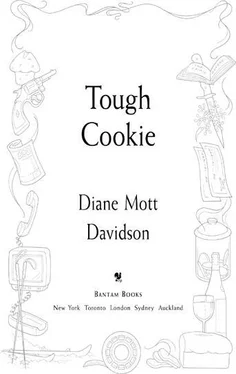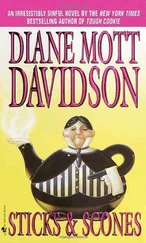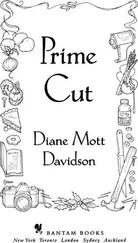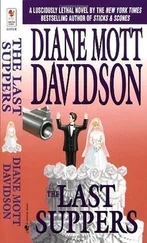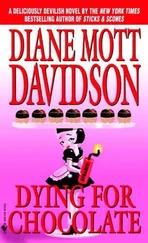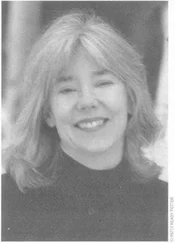The trailhead, filmed as Nate’s establishing shot, offered food for thought. In the film, these signs appeared without posted warnings. Now, the arrows to Elk Ridge and Elk Valley were covered with a sign stating Closed for Winter——No Entry . Beyond the trailhead, a formidable wooden barrier stretched from one sheer rock outcropping to another. But there was something else that offered possibilities.…
A bright orange sign posted beside the trailhead screamed Construction Workers Only!!! and marked the beginning of what must be, under the plowed snow, a dirt road. Did the construction road wind around to the gondola? Was I willing to chance it?
From the Rover, I could see the plowed road was not without security: tall poles abutted huge snowdrifts on both sides. Bands of padlocked horizontal chains attached to each pole were undoubtedly designed to ensure no scofflaw skier or boarder squeezed through to get to the ridge. But whatever project manager had overseen the installation of the poles into dirt bases—rather than wide, deep, cement bases—must have been from a warmer climate. Our state’s heavy snowfall guaranteed that any mailbox, road sign, or metal pole pushed into shallow dirt was going to heave out sooner or later, as the ground froze, thawed, and refroze. In this case, the heaving had happened sooner, and one of the poles now leaned precariously into the road. This left a gap that I bet was big enough for a short, only-slightly-pudgy caterer to squeeze through.
I shouldered my bag resolutely, hopped out of the Rover, locked it, glanced all around, and made for the construction road. After squeezing between the pole and drift, I trotted along the pocked, snowpacked road. Thank God I wouldn’t be skiing down tonight, and was therefore free of skis, heavy ski boots, and poles. Then I made a surprising and unhappy discovery. The road meandered up twenty yards and then forked. Did the left side go over to the gondola? Was I willing to find out? I didn’t have time.
The right side of the fork swung up and joined, or rather, became the path that led to Elk Ridge and Elk Valley. The path, formerly a narrow hiking trail, had been widened to accommodate two vehicles. I couldn’t imagine how the nature-loving summer hikers were going to react to this transformation, but it wasn’t going to be pretty. By the time the Sierra Club could drag Killdeer into court early in the summer, the lifts and runs would be built. No wonder Killdeer had undertaken the challenging winter construction schedule.
So I had a problem: It was ten to three, and I needed to get to the bistro by three-thirty. Since the dirt construction road did not lead to the gondola, I needed to go through town. Damn .
I scuttled back to the parking lot and the main road. The Victorian-style boutiques in Killdeer were mobbed with last-minute Christmas shoppers. I melted into the frantic crowd. Shielded by the mob, I stayed as far away from the Cinnamon Stop’s windows as possible. Eventually I was chugging up the mountain in a gondola car next to a skier complaining about the snowstorm and how long it had taken to blow through. Across from us, three teenagers, more philosophical about the weather, were singing carols in harmony. While the wind still gusted fitfully, the snow had thinned to flurries. The sky rolled with new dark clouds that parted and thinned in the west. By morning, with any luck, it would be clear, and they would have plowed the interstate back to Aspen Meadow.
Once off the gondola, I surveyed the bistro. Smoke curled out of the two chimneys. Late-day skiers straggled out to catch one last run. Stay with someone , Tom had warned. It would not be smart to take the hidden cassette directly into the restaurant. I could be mugged or pickpocketed by “Reggie Dawson” or any other unsavory character, and lose the evidence forever. Reflecting, I gnawed the inside of my cheek and then set off for the lower entrance, the one that led to the bistro’s storage areas. At this time of the day, workers should be down there sorting and packing the day’s trash into canisters. They wouldn’t mind a servant coming through the servants’ entrance, would they?
The two lower-level barn-type doors were partially open. My entry with my toolbag raised the eyebrows of the pair of grizzled, hulking workers. Both were so swaddled in scarves, hats, heavy gloves, layers of sweatshirts, and what looked like padded dungarees, that they were unrecognizable.
“I’m one of the cooks,” I explained to one as I squeezed past the first stinking canister. He nodded apathetically and turned back to his work, while I scuttled along the tunnellike, neon-lit hallway. It was dank and cold. I was surprised at how depressingly subterranean the concrete basement was, at how tired and raggedly clad the workers had been. The bistro’s storage area was as unglamorous a workplace as the bare trailer park was a living area. As I bustled into a freezer-lined room and tucked the cassette between boxes of frozen chocolate cakes, I wondered if the rich folks who played on the manicured slopes outside had any idea of the economic underside of their vacations. The workers labor all day and night, dress and eat poorly, and are crammed into freezing trailers at the edge of town. Not something for the resort owners to be proud of.
I rushed up the steps and, panting, came through the uncrowded kitchen, where the six-person evening staff was bemoaning the fact that one of the two walk-in refrigerators was out of order. It would take twice as long to prep for the evening meal, they complained, as they set about cutting leeks, carrots, onions, and celery into julienne. I set my bag down and asked one of the cooks if Jack Gilkey was here. No, Jack had gone to Denver to see Mrs. Druckman in the hospital. The food for the show lay prepped on a sideboard, the cook added. He pointed to a counter. The other cooks began to snigger, and I thought I caught one of them saying, “At least he isn’t here to take the credit for our work, the way he usually does.”
I slipped into my jacket and uniform for the show, then inspected Jack’s—or his subordinates’—impressively organized foodstuffs, all labeled: a loaf of Julian’s crusty golden-brown five-grain bread sat next to the yeast, molasses, and other ingredients. The cereal and its ingredients were similarly laid out. Beside these was a platter lined with grilled Canadian bacon and plump sausage links. At the end of the counter, a crystal plate was adorned with concentric circles of fresh sliced ruby red strawberries, golden pineapple, and emerald green kiwi, all dotted with fat blueberries and raspberries. My stomach reflected on the long-ago peanut butter and jelly, and sent up a distress signal. Later , I promised myself.
Jack had left me a note: Goldy—I’ll give Eileen your love. Break a leg! J . I guessed I was one of the people Jack looked up to. Or was hoping to get something from, as Rorry claimed? I wouldn’t mind working with him one bit, if I could be sure he was a good guy.
Hopefully, Nate’s video would tell all.
I scurried out to the hot line with the first batch of ingredients. Would the bistro audience be disappointed to be receiving only oatmeal, bread, Canadian bacon, and fruit for their nine bucks? I didn’t know. Boots Faraday, now apparently a regular at the show, was seated serenely by the fireplace. So, unfortunately, was Cinda Caldwell. My heart lurched.
Arthur strode toward me, clipboard in hand. He appraised me menacingly. I felt myself blushing. Finally he said, “I suppose you know the chef’s gone to see the owner in the hospital.” He made it sound as if I had put Eileen there.
“Not to worry, Arthur. Jack left everything done.”
Arthur narrowed his eyes skeptically, then handed me the visual they would post for the menu. There was the usual Front Range PBS logo, followed by: Feel-Your-Oats Holiday Breakfast Celebration
Читать дальше
